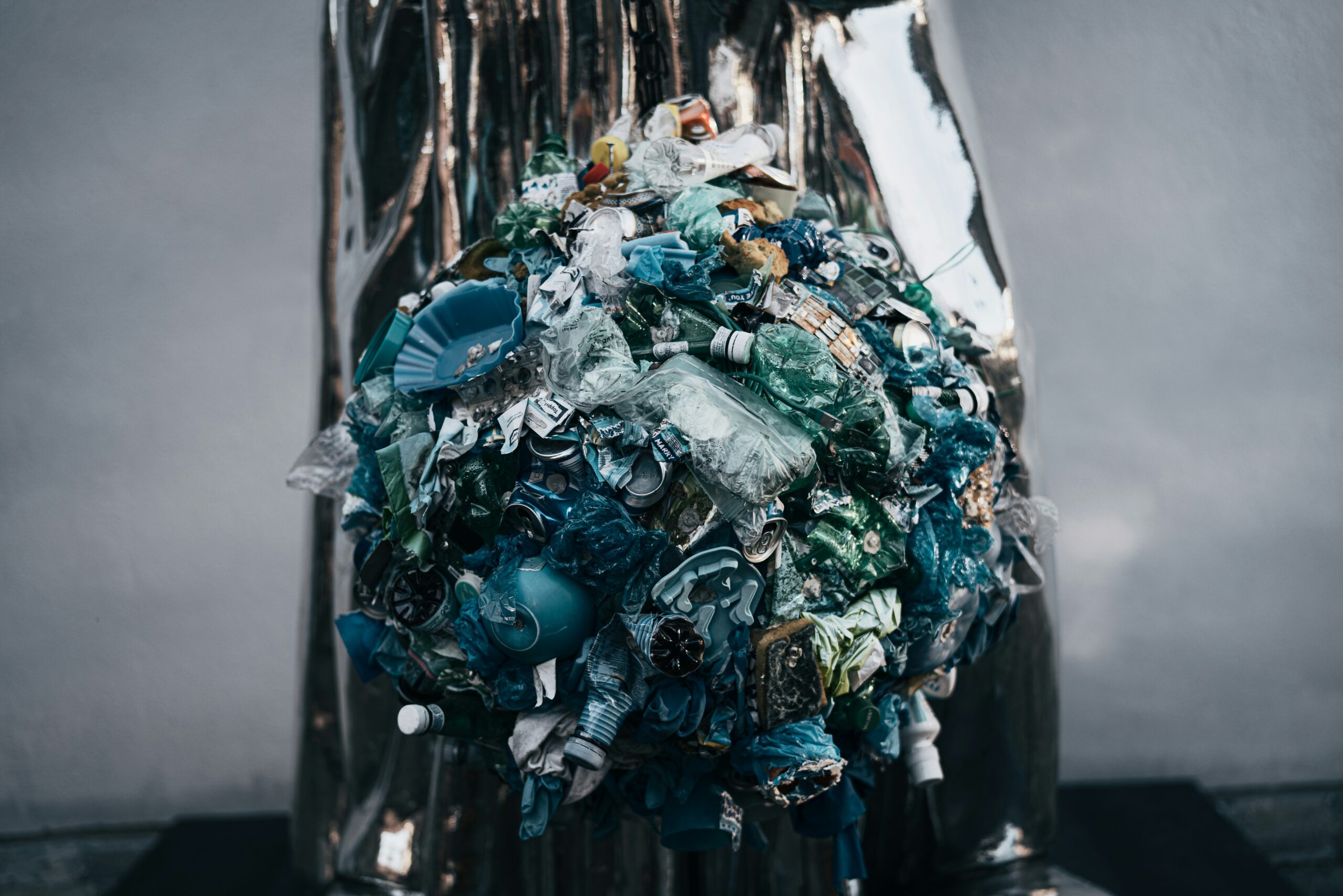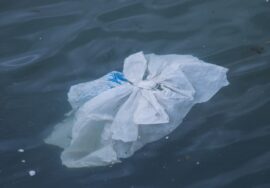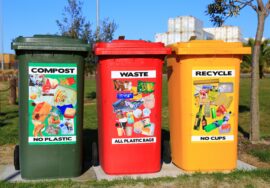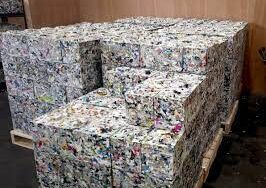

The production, use and disposal of plastics products have led to widespread contamination of the environment, particularly in oceans and waterways. Plastics do not biodegrade easily; instead they break down into smaller pieces known as microplastics that persist in the environment for hundreds of years. This has severe consequences, including harm to marine life, contamination of the food chain, pollution of soil and water, and significant economic impacts.
Problem Analysis:
The Negative impact of plastic pollution has become a pressing global issue, threatening the very foundation of our mother earth.
In Nigeria, plastic pollution is a significant problem, with over 2.5million plastic waste annually according to the World Economic Forum- this means that for every minute that passes, around 5 plastics waste items are generated, only about 1 is recycled while the other 4 ends up on the floor, gutter, ocean and landfills.
Our oceans and waterways are suffering, with plastic waste blocking our drains and polluting our rivers. For example, the guardian newspaper reported in 2022 that the famous Lagos Lagoon, a vital source of livelihood for many Nigerians, is choking under the weight of plastic waste.
But it is not just Nigeria; plastic pollution is also a pan-African problem, in 2020, the United Nation Environmental Programme reported that Africa generates over 70 million tons of plastic waste annually, with only 10% being recycled. Our continent’s marine life is paying the price,as it was reported by the World Wide Fund in 2020 that over 100,000 marine animals are killed by plastic waste every year.
Plastics are not biodegradable, therefore, they spend more time in our dumpsites, gutters, and drainage. Most of the time, the locals resort to burning them. The World Health Organization has identified dioxin as one of the chemical substances released from burning plastic waste. Dioxin has been linked to cancer, damages to the immune system, hormonal imbalance and other reproductive and developmental problems. With an estimated 116,000 new cases of cancer and 41,000 cancer related deaths recorded in Nigeria by WHO in 2018, continuous open burning of plastic waste across Nigeria may increase the figures.
Additionally, according to the International Union For Conservative of Nature(IUCN), when plastics break down into smaller pieces known as microplastics, they often find their way into tap water and other sorts of drink ingested by humans. Recent studies have found them in human lungs, livers and kidneys, according to The Guardian. The acute use of chemical materials in producing these plastic containers, which can cause cancer, poses a threat to human life in Nigeria.
Plastic waste also has a negative effect on marine life, marine animals often mistake plastic debris for food, leading to ingestion and entanglements. This can result in internal injuries, starvation, and even death.
The economic and social implications are also severe. In 2019, the World Bank reported that Plastic pollution costs Nigeria over $10 billion annually in lost revenue and environmental damage. The United Nation Environmental Programme also revealed in 2020 how plastic pollution threatens the livelihood of millions of people who depend on fishing and tourism.
Evidently, plastic waste is a problem, and if not addressed, it will continue to choke our oceans, contaminate our soil,and worsen climate change, the consequences are dire, with millions of marine animals killed, and human health severely impacted

Path to solution:
Amidst these crises, there is hope.
With growing concern about the environment, corporate social responsibility has become an essential component of a business strategy. The idea behind corporate social responsibility is that a company should play a positive role in the community and consider the environmental and social impacts of business decisions.
Since the mid-1950s, most of the world’s leading businesses have come to agree that companies have economic, legal, ethical and philanthropic responsibilities.
Economic responsibilities is a commitment to making profits, operating efficiently and being competitive. Focusing on these alone would lead to environmental problems unless it considers the long term. While, ethical responsibility means being in fair accordance with social expectations. For example, it means a company is doing its fair share to prevent and clean up waste.
Philanthropic responsibility is something extra a company can do to make the world a better place. Many companies get involved in volunteering, empowerment and support of innovative programmes to help people.
The one way for all of these responsibilities and environmental sustainability to meet is by giving economic value to waste. In Nigeria, most companies focus on the philanthropic dimension of corporate social responsibility. For example, they organise voluntary cleanup campaigns in communities, and advocate for proper disposal of waste- these are temporary solutions, as huge amounts of plastic waste continue to be deposited into the environment.
What is needed is a company that practises all these dimensions properly, the use and dump of plastics won’t be a threat, instead they will conform with some of the UN’s Sustainable Development Goals.
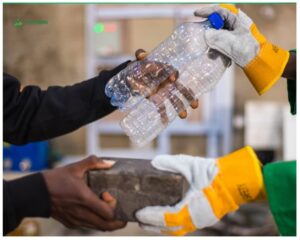
City Pavers
City Pavers is a pioneering environmental service and construction enterprise, restructuring the way we tackle plastic waste and pollution. We saw an opportunity to tackle two major problems at once- the growing plastic crisis and the environmental impact of traditional building materials. By transforming discarded plastics into high- quality construction products, we are not only cleaning up communities, but also providing a sustainable alternative that can be used to create truly remarkable construction products.
Our mission is clear; to transform the world by achieving the United Nations’ Sustainable Development Goals, particularly SDG 6, 9, 11 and 12. We are committed to redefining the future of construction, producing high-quality, long-lasting paving stones that address plastic pollution in Nigeria and by extension Africa, offering a sustainable alternative to traditional construction materials.
With City Pavers, we can:

Reduce plastic waste, by using recycled plastic to produce our paving stones, we can divert tons of plastic waste from entering our oceans and landfills. According to the United Nations Environment Programme(UNEP), if we don’t act now, there will be more plastics than fish in the ocean by 2050, with City Pavers, we can help prevent this catastrophic scenario and keep our oceans and landfills from plastic pollution.
We can; create sustainable infrastructure that will benefit future generations. Our paving stones are made from 100% recycled plastic, reducing the need for virgin materials and decreasing carbon emissions. According to the World Bank, sustainable infrastructure is critical for achieving the United Nations’ Sustainable Development Goals (SDGs), particularly SDG 9(Industry, Innovation and Infrastructure) and SDG 11 (Sustainable Cities and Communities).
With City Pavers investing in sustainable infrastructure, we can support economic growth and development, improve the quality of life for citizens, enhance environmental sustainability and increase resilience to climate change.
Our commitment to support innovative solutions to plastic pollution aligning with the World Wildlife Fund’s (WWF) efforts to reduce plastics waste globally. Through our innovative solutions, we are reducing plastic waste, promoting a circular economy, and supporting waste management initiatives. We believe in collaborations with the United Nations, NGOs, socially responsible companies to achieve our goals
Outlined project goals and objectives:
- Reduced plastic waste in our oceans and landfills
- Create sustainable infrastructure for future generations
- Support the achievement of the sustainable development goals
- Create jobs and stimulate local economies
- Promote environmental sustainability and community development
- Provide sustainable solutions for plastic waste management
Product section (Plastic Paving stone):
Recycled plastic paving stones are considered a sustainable option in the construction industry. They are made from post-consumer and post-industrial plastic waste, which undergoes a process of collection, sorting, and reprocessing. Because of their durability, recycled plastic paving stones have gained attention.
While traditional brick stones are known for strength and longevity, plastic paving stones have shown significant improvement in terms of wear resistance and weather resistance. High-quality plastic pavers can withstand heavy foot traffic, vehicular loads and harsh weather conditions without cracking or deteriorating. This durability ensures that plastic paving stones maintain their functionality over time, reducing the need for frequent replacements and repairs.
These paving stones offer significant advantages in terms of installation compared to traditional brick stones. Due to their lightweight nature, plastic pavers are easier to transport, handle and install on-site. This ease of installation can reduce labour costs and shorten project timelines, making plastic paving stones a practical choice for users.
Conclusion:
In our quest to transform Mother Earth’s future, together, we can create a better future—a future where plastic pollution will be a thing of the past and sustainable infrastructure will be the norm.

